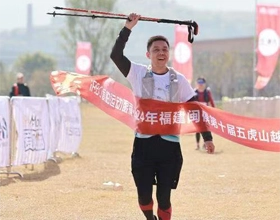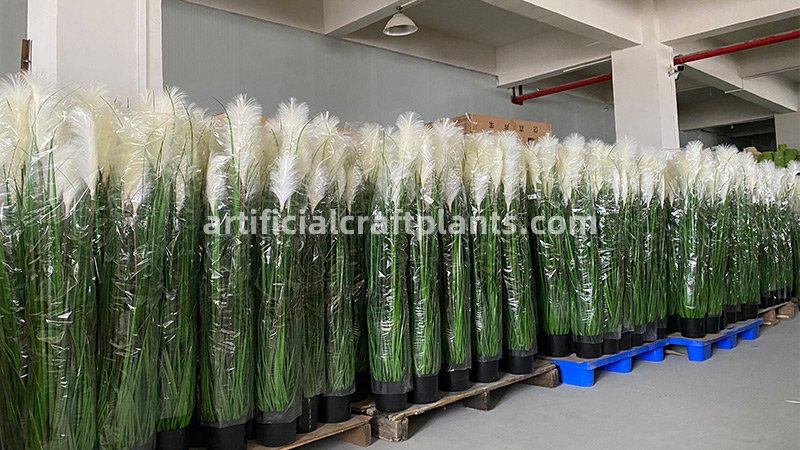Sourcing artificial plants from China offers significant cost advantages, but finding a reliable supplier is a challenge. Quality inconsistencies, communication barriers, and hidden costs can turn a promising deal into a costly mistake.
A strategic approach—evaluating supplier credentials, verifying production capabilities, and negotiating favorable terms—ensures a successful sourcing experience.
This guide will walk B2B buyers through the essential steps to identify and partner with trustworthy Chinese artificial plant manufacturers.
Why Source Artificial Plants from China?
China is the world’s largest producer of artificial plants1, offering:
- Competitive Pricing: Large-scale production keeps costs low.
- Diverse Product Range: From small potted plants to large artificial trees.
- Customization Options: Tailor-made designs for specific markets.
- Advanced Manufacturing Technology: Realistic textures and durable materials.
However, not all suppliers maintain high standards. Identifying a reliable partner requires due diligence.
Step 1: Define Your Sourcing Requirements
Before reaching out to suppliers, clarify your business needs:
- Product Type: Small plants, large trees, green walls, or custom designs?
- Material Preferences: Plastic, silk, PU, or fire-retardant materials?
- Minimum Order Quantity (MOQ): What volume fits your budget?
- Target Market Standards: Does the product need REACH2 compliance for the EU or fire resistance certification for commercial use?
Step 2: Where to Find Reliable Suppliers
1. Online B2B Platforms
- Alibaba — Largest marketplace for Chinese manufacturers.
- Global Sources — Verified suppliers with international trade experience.
- Made-in-China — Strong for bulk orders and factory sourcing.
2. Trade Shows & Exhibitions
- Canton Fair3 (Guangzhou) — China’s biggest trade expo, featuring artificial plant manufacturers.
- China International Floriculture & Horticulture Trade Fair4 (Beijing, Shanghai) — Focuses on decorative plant suppliers.
3. Factory Visits & Local Agents
- Factory Audits: Visiting suppliers in person ensures quality control.
- Sourcing Agents: A trusted agent can help with factory verification and negotiations.
Step 3: Evaluating Supplier Credibility
1. Business License & Certifications
Ensure the supplier is a legally registered business in China. Request:
- Business License (营业执照) — Confirms legitimacy.
- ISO Certifications — ISO 90015 (quality management) and ISO 140016 (environmental management).
- Material Compliance — REACH2, RoHS7, and SGS testing8 for safety standards.
2. Production Capabilities & Quality Control
- Production Capacity: Can they handle your order volume?
- Quality Control Process: Do they conduct product inspections?
- Material Testing: Are their artificial plants UV-resistant, flame-retardant, or weatherproof?
3. Reputation & Customer Reviews
- Check customer feedback on Alibaba and Global Sources.
- Request client references from the supplier.
- Look for third-party audit reports from SGS8, TUV9, or Bureau Veritas10.
Step 4: Requesting Samples & Comparing Quotes
1. Order Product Samples
- Examine material quality, color accuracy, and overall finish.
- Test durability (e.g., exposure to sunlight and bending flexibility).
- Ensure packaging protects products during transit.
2. Compare Supplier Quotations
Request detailed quotes, including:
- Product Cost (per unit and bulk pricing).
- MOQ Requirements.
- Shipping Costs & Lead Times.
- Customization Fees (if applicable).
Step 5: Negotiating Terms & Payment Safety
1. Best Incoterms for Artificial Plant Orders
| Incoterm | Seller’s Responsibility | Buyer’s Responsibility | Best for |
|---|---|---|---|
| EXW | Only factory costs | All shipping & import fees | Buyers with freight forwarders |
| FOB | Inland transport & port fees | Freight & destination costs | Standard for sea freight |
| CIF | Freight & insurance | Import duties & local fees | Buyers needing full-service shipping |
2. Secure Payment Methods
| Payment Method | Safety Level | Common Use |
|---|---|---|
| T/T11 (Bank Transfer) | Medium | Standard for bulk orders |
| PayPal12 | High | Sample orders & small transactions |
| Letter of Credit (L/C)13 | Very High | Large orders ($50,000+) |
| Alibaba Trade Assurance14 | High | Secure online transactions |
3. Avoiding Scams & Fraud
- Never pay 100% upfront — Secure a 30/70 payment split (30% deposit, 70% before shipment).
- Verify bank details — Cross-check with company registration.
- Use secure platforms — Alibaba’s Trade Assurance14 offers dispute resolution.
Step 6: Quality Control & Pre-Shipment Inspection
1. Third-Party Inspection
Hiring an independent quality control firm (SGS8, TUV9, or Bureau Veritas10) ensures product consistency. Inspections cover:
- Material Quality & Finishing — Checking for defects or inconsistencies.
- Packaging & Labeling — Ensuring compliance with import regulations.
- Drop Tests — Simulating transit conditions to verify durability.
2. Factory Self-Inspection
If working with a trusted supplier, request:
- Production Line Photos/Videos
- Batch Testing Reports
- Real-Time Video Inspection Calls
Common Myths About Chinese Artificial Plant Suppliers
"The cheapest supplier is the best choice."
Not true! Low prices often mean compromised quality or hidden costs in materials and production.
"All suppliers can produce custom designs."
Many factories only handle standard designs. Always confirm customization capabilities before placing an order.
"Once a sample is approved, bulk orders will match."
Samples may differ from mass production. Implement quality control checks before shipment.
Conclusion
Sourcing artificial plants from China can be highly profitable, but success depends on careful supplier selection, strict quality control, and secure payment practices. By following this step-by-step guide, B2B buyers can establish long-term, reliable partnerships while minimizing sourcing risks. A well-chosen supplier isn’t just a vendor—it’s a key to sustainable business growth.
-
Explanation: This link provides general information on why China is considered the world's factory, supporting the claim that it is a major producer of artificial plants [Investopedia]. ↩
-
Explanation: Official European Union page for REACH, a regulation on chemicals and their safe use, relevant for material compliance in artificial plants. ↩ ↩
-
Explanation: Official website of the Canton Fair, a major trade expo in China for various products, including artificial plants. ↩
-
Explanation: Official website of the China International Floriculture & Horticulture Trade Fair, focusing on decorative plant suppliers. ↩
-
Explanation: Official page for ISO 9001, a quality management standard that suppliers may adhere to. ↩
-
Explanation: Official page for ISO 14001, an environmental management standard that suppliers may follow. ↩
-
Explanation: Official European Union page for RoHS, a directive restricting hazardous substances, potentially relevant for artificial plants with electronic components. ↩
-
Explanation: SGS is a global inspection, verification, testing, and certification company that ensures product quality and compliance. ↩ ↩ ↩
-
Explanation: TUV is a German-based organization providing testing, inspection, and certification services for product safety and quality. ↩ ↩
-
Explanation: Bureau Veritas is a French-based company offering testing, inspection, and certification services for product quality and compliance. ↩ ↩
-
Explanation: Investopedia page explaining what a Telex Transfer (T/T) is, a common payment method in international trade. ↩
-
Explanation: Official website of PayPal, a popular online payment platform for transactions with suppliers. ↩
-
Explanation: Investopedia page explaining what a Letter of Credit (L/C) is, a financial instrument guaranteeing payment to suppliers. ↩
-
Explanation: Official page for Alibaba Trade Assurance, offering protection for buyers in case of transaction disputes or non-delivery. ↩ ↩

Hello everyone, I'm Li!By day, I'm a seasoned expert in the artificial plant industry, starting from the factory floor and working my way up to running my own successful business. In my free time, I’m passionate about running and often join trail runs with friends.Here to share what I've learned—let's grow together!



